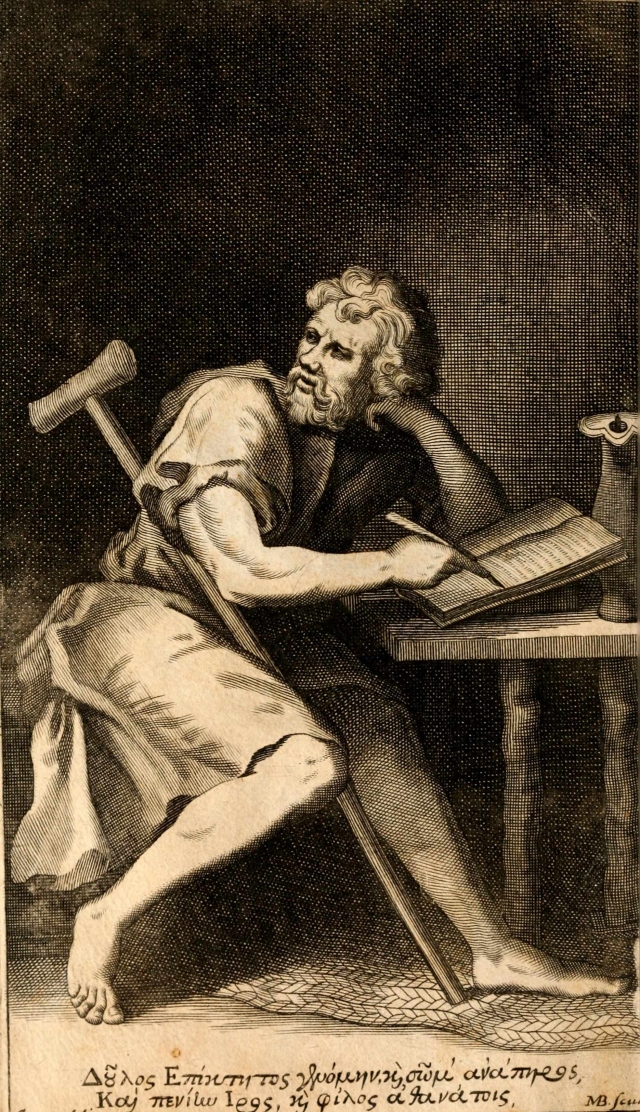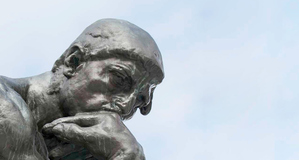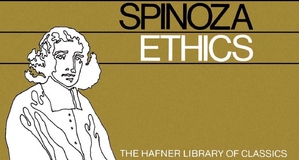The Value of Reason in the Stoic Philosophies of Epictetus and Aurelius
By
2017, Vol. 9 No. 03 | pg. 1/2 | »
IN THIS ARTICLE
Philosophers have long debated the meaning of virtuousness and the role that reason plays in achieving it. According to the Stoic philosophers Epictetus and Marcus Aurelius, virtue comes through a proper understanding of nature, its processes, as well as one’s place in it. This piece will first explicate Epictetus’ and Aurelius’ views concerning nature, its workings, and the role that reason plays in it. Next, I will explicate both of their views on what one can do to garner rationality, through their shared brand of Stoicism. Finally, I will argue that the ability people have to apply reason correctly may be the core Stoic virtue to Epictetus and Aurelius, since it leads to a true understanding of one’s self, and how to effectively navigate through the course of life. Epictetus’ Stoic PhilosophyAccording to the Stoic Epictetus, what drives nature is a divine providence.1 That is, to him, nature is orderly, rational, and patterned. Furthermore, in Epictetus’ view, since the natural order unfolds according to a rational plan, it is the case that one may believe that the laws of nature, its processes, and the general rhythm of life are worthy of awe and veneration.2 In other words, through the lens of Epictetus, one may equate the conceptual aspects of the natural order, and nature itself, to the divine. Finally, it is important to note that to Epictetus, though nature and its operations imply that there is a cosmic governance orchestrating its flow, one must remember that in his view, that sacred essence is totally impersonal.3 Also, since the divine essence behind the universe’s unraveling is aloof, it follows that the events in people’s lives are not completely in their control.4 In other words, though people may believe that the happenings in their lives are completely random, in Epictetus’ view this is not entirely true. Rather, it is more accurate to claim that nature determines the conditions of life, and people as its products, are not completely free.5 At the same time, Epictetus claims that the little freedom that people do possess allows them to steer their lives according to, or away from, their natural dispositions.6 Though people have the power to swerve away from who they know themselves to be, in Epictetus’ view, it would be highly deleterious to one’s mind, or ruling faculty, to do so.7 That is, those who knowingly defy how nature has fixed them to exist, are damaging their ability to reason by living inauthentically. Moreover, to Epictetus, when one’s ability to reason is impure, it follows that it is much easier for one to blame all others except one’s self for one’s mistakes.8 To Epictetus, this damaged, or irrational way of viewing reality, is never wise to embrace, since focusing on what one cannot change can never assist in making one’s life better.9 Conversely, those who live by reason, Epictetus believes will face the least amount of resistance in their lives.10 That is, those who accept that fate has set the parameters of life and live according to how they understand themselves to be, without veering away from that understanding, have an easier time living happily than those who do not. From this, people, by living in an unperplexed way, can more easily focus on their self-cultivation, and in doing so, harness themselves to become virtuosos of their humanity.11 In other words, Epictetus believes that the more people become aware of what they can amend about themselves, the more they can master who they are, which is most easily achievable by living in a genuine, or natural, or rational way. It is also worth addressing why Epictetus values reason. According to him, all things in life are ephemeral, or transient.12 That is, material possessions, the body, feelings, relations to others, and even the rational soul itself are all fleeting. Therefore, one may conclude that because people's abilities to reason are impermanent, implying that rationality is pointless to take care of, Epictetus would highly disagree. One reason why he would claim that reason is precious, and hence, worth keeping safe, is that it reflects a higher order, and it is humanity’s greatest gift.13 In other words, securing one’s ability to correctly reason is paramount, due to it being the defining characteristic of one’s self, which one must deal with as long as one endures. Consequently, it is easier to live life with a clear mind, and a level-headed attitude, which, in turn, mimics the impersonal nature of the divine providence that rationally governs the natural order.14 Thus, one may claim that in the eyes of Epictetus, though rationality is not everlasting, it is people’s most intimate quality, and since it is the bedrock of their identity or self-awareness, it follows that contentment and tranquility are easier to achieve when one’s reason is intact.15 Furthermore, the value of reason is in its power to assist people in being the most natural, or rational, or authentically reflective of the impersonal sway of life as possible.16 In other words, to Epictetus, reason is precious since it helps people to live according to what really matters in life, and allows them to handle both good times and bad, in a way that will not lead to overindulgence or vexation. Consequently, one may claim that reason plays an integral part in people’s powers to live ethically.17 That is, when people apply reason to how they think and act, it follows they are moral since they are handling what is grim, and handling what is benevolent, in an equally cool headed way. From this, one would be correct to claim that in the Stoic view of Epictetus, reason enables people to ascend to a higher understanding of nature, which, in turn, leads them to the correct disposition needed to endure all that life can throw at them.18 Aurelius’ Stoic PhilosophyAccording to the Roman emperor, and Stoic philosopher, Marcus Aurelius, people should neither praise nor fear the sacred providence that directs the flow of nature, but rather they should imitate and emulate it.19 That is, to Aurelius, the divinity of nature provides the equipment needed for people to live self-sufficiently, and thus, it is in their power to be either good or malevolent. Moreover, when one is living according to what is righteous, one is living ethically, which Aurelius claims derives from being genuine, or true to one’s self.20 Conversely, when people are living in an ingenuine way, it follows that they are not copying nature since they are insincere.21 This insincerity, Aurelius claims, is unethical since it is not only defying nature, it is more damagingly living in bad faith. Finally, this fake way of going about one’s life, Aurelius claims can only lead to hardships since it is irrational, and thus, unnatural.22 To Aurelius, the divine essence that permeates throughout the natural order is rational. Moreover, one may claim that since the universe runs according to the dictates of an orderly and structured Providence, it follows that what is natural is rational, and what is rational is natural.23 From this, it is arguable that in Aurelius’ eyes people who are rational are being natural since human reason ultimately derives, and is part of, that divine providence that displays and operates with a rational structure.24 In other words, because the cosmos unfolds in a comprehensible way, and thus, displays rationality, it is the case that people as part of that natural order necessarily possess reason too. By being innately rational, Aurelius believes that people who live by reason are in tune, or at one with who they are, since they are not only recognizing but also participating in, and copying, the higher immaterial aspects of the universe.25 Though Aurelius would ascribe to the view that the providence of nature, and nature itself, determines people, and thus, it is ultimately not in their control to change who they are, he does believe that people can control their reactions.26 In other words, though people are unfree, and cannot change their inherent natures, it is the case that they can regulate how they face and handle the realities of life. To Aurelius, the power one has to spartanly face hardships head on, as well as one’s ability to humbly accept the good that comes into one’s life, is the proper way to deal with reality.27 That is, regardless of what people consider to be troubling or beneficial for themselves, individuals must hone, or master their responses to life by cultivating an attitude of detachment from it. Hence, Aurelius would agree that those who remain unfazed by life’s happenings are being moral, since they are not only rational, or natural but also focused on the cultivation of who they are by mimicking the impersonality of life itself.28 Finally, this higher ethic, Aurelius believes, should guide all individuals since it is praiseworthy and produces in them the dispositions needed to live contently.29 As understood by Aurelius, to live contently, people must live by reason for the sake of their well-being, and not due to the influence of another.30 That is, people should focus on mastering their abilities to reason so that they can live peacefully, for themselves, and not please or burden other individuals. To Aurelius, this is authentic living, since those who live for the sake of cultivating their true selves, without blindly following the wants or opinions of others, are experiencing life in a way that does not follow the sway that others may have on them.31 From this, one may claim that people who sincerely behave in a way that benefits the health of their minds are living life not only in a safe way but also in the way in which nature intended.32 Hence, the impersonal flow of nature, and its rational aspects, people should express by living as unbiasedly as possible, which reflects providence’s intent, due to it being impersonal as well.33 Moreover, Aurelius addresses the value of reason and why people should keep it as pristine as possible.34 As understood by Aurelius, the capacity to engage in conceptualizing, or the active mind, is a piece of the divine and active providence that shines throughout existence, in humanity.35 Consequently, one must keep reason pure just as one is to regard the natural order and its laws as holy.36 To keep the mind clean, people should keep track of their thoughts, moderate them, and ultimately let them go, to truly be a reflection of the harmonious disinterestedness of nature.37 Furthermore, one may argue that to Aurelius, by copying the impersonality of the universe, one is expressing the divinity of nature since it is allowing one’s self to be the clearest conduit for its activity.38 Therefore, since the mind’s power to engage in forming concepts is the means to reach the sacredness of nature, it is the case that respecting one’s mind should be a paramount concern.39 By respecting the mind, Aurelius means using it correctly for the sake of truth.40 Thus, refraining from slander, practicing temperance, being dutiful, participating in the ebb and flow of life, and fulfilling the role that the divine assigned one to play, are all qualities that one should practice.41 Accordingly, Aurelius believes that practicing these virtues leads to a type of holiness, inner-awareness, or spiritual freedom, for two main reasons. First, he believes that in a practical sense, one cannot deny the authenticity of individuals who embrace his recommendations, since nothing bad can come about from being virtuous.42 Second, metaphysically speaking, Aurelius believes that when people are the best individuals they can be, they are activating that spark of Providence within them, or fulfilling their duty as rational beings.43 The Path to Reason Through Epictetus and AureliusTo both Epictetus and Aurelius, the way to a rational understanding of one’s self, nature, and the processes that guide it is through the ceaseless practice and application of reason.44 One recommendation that both Stoics agree on is that people should vividly imagine the worst that can happen to them, so that they may become desensitized, resilient, and prepared for it.45 That is, to the Stoics, the flow of life is impersonal, and thus, it is neither good nor bad, rather it is up to people to adapt to or resist it. Consequently, both Epictetus and Aurelius would argue that those who are ready to take on life, by focusing on their greatest fears, are living rationally, since what is evil spares no one, and hence, those who build endurance to it are wise.46 In other words, since those who are ready for life’s hardships are being wise, which is a form of rationality, it follows that they are living according to the neutral providence that comprehensibly drives the ever-evolving universe. Another way to build one’s rational powers that both Epictetus and Aurelius would support would be if one were to focus on nothing but the present moment and one’s current situation persistently, yet detachedly.47 That is, to both philosophers, focusing on the present moment and analyzing one’s plight, from an unbiased perspective, is an integral way to garner one’s ability to reason. One may argue that by being level-headed, people are making room for reason to flow through them since neutrality conditions the mind to be a transparent conduit for the pure reason that all individuals inherently house, to spring forth.48 From this, it follows that those who are authentic are allowing their innate rational powers to emanate through them, which, in turn, strengthens their abilities to reason.49 That power to reason, according to both Epictetus and Aurelius, increases when people are natural, or true to themselves, which derives from concentrating on living life in the moment, as well as being authentic.50 Both philosophers seem to agree that living in the moment is a skill that shows humility and greatness at the same time.51 The reason why both Epictetus and Aurelius would believe that the talent of solely living in the present is both humbling and magnanimous is due to them both agreeing that the current moment is a gift and that being alive is precious.52 Accordingly, this belief in the divinity of the present, and that being part of life is good has the power to induce a feeling of resignation and admiration for nature and the chance to be alive.53 At the same time, the focus people need, to constantly live in the present moment, is a virtue, not only because it produces a mind that mimics the neutrality of the natural order, but also because it is praiseworthy.54 That is, the time dedicated to cultivating a mind for Reason to shine through, in the clearest of ways, is challenging, hard to achieve, and demands determination. Finally, because making room for the purest part of the mind to express itself through consciousness entails training it to be clear, which comes from remaining in the present, is a monumental feat, and it fulfills one’s duty as a person to live simply and to think uncloudedly.55 Moreover, Epictetus and Aurelius both support the view that since nature determines the conditions of life, it follows that each person harbors a purpose or role that they are to fulfill.56 In other words, the cosmos is a becoming system, which implies that it is meaningful, and thus, it follows that people, as its derivatives, house a meaning within them as well. That meaning is for one to discover rationally, and once one does, it is the case that one should play one’s role to the best of one’s abilities.57 Lastly, it is the case that acknowledging who one is, and embracing one’s role as nature intended, promotes the growth of one’s power to reason.58 When people live up to who they know themselves to be and fulfill the role that Providence has assigned them, it follows that they are strengthening their abilities to reason.59 One reason why living according to what one was designated to be, and thus heightening one’s power to think clearly, is that by living in line with one’s purpose, one can experience one’s destiny with less irrationality.60 That is, both Epictetus and Aurelius would argue that people should be who they are, and play the role that fate has fixed them, which, in turn, should lead them to a clearer understanding of life’s flow. By understanding life in a more precise way, people can build their abilities to think, since they are living as nature intended.61 In other words, to both Stoic philosophers, it does not matter whether life has designated one to be a king or slave, what is most important is that one plays that role well so that one may have the most tranquil life possible. Hence, one may claim that to Epictetus and Aurelius being faithful to one’s place in nature is paramount, not only because it builds rationality, but also because it places one in a position to live contently.62 Lastly, since there is an unbreakable bond between reason and happiness, it is arguable that to both Epictetus and Aurelius, reason is the greatest virtue that one can garner.63 The Importance of Reason to Epictetus and AureliusOne may claim that to Epictetus and Aurelius, reason is the greatest virtue that exists, since it leads to that which is good in a variety of ways. To both philosophers, that which is good is what people know to be conducive to living naturally, as well as that which can assist them in not straying away from living in that manner.64 Consequently, one may claim that reason is paramount to both gaining self-awareness, or knowing one’s inner-being, and the discipline to remain true to that understanding.65 That is, reason is the engenderer of self-reflection, and, also, self-knowledge, making it the case that without it there would be no way for one to know one’s self. From this, it follows that if people were not aware of their inner-beings, there would be no chance of them being able to master themselves.66 Therefore, since reason is requisite for knowing the self, and conditioning the self to be in control of itself at all times, it follows that both Stoics would agree that rationality is the greatest virtue, due to it being the root of consciousness, and of self-mastery.67 Lastly, to Epictetus and Aurelius, reason is also the most valuable virtue since it provides one with the tools necessary for living in an inwardly self-sufficient way.68 By existing with a focus on cultivating one’s rational and emotional autonomy, one may claim that Epictetus and Aurelius were correct in agreeing that reason is the most valuable virtue.69 That is, through applying and practicing reason, people may ascend to a higher level of being, or a state of existence in which they are free from being a slave to their ideas and feelings, while at the same time not completely divorced from them. This state of rational, or moderate detachment from the world, people can only cultivate by embracing the path of reason.70 Epictetus and Aurelius would both agree that reason leads to unbiasedness since both ascribe to the view that rationality is the ruling faculty or commanding aspect of one’s being.71 Consequently, since people’s rational powers fix the ways in which they think and emote, it is the case that reason is the greatest virtue to practice since it is most effective in paving the way for how one should handle life.72 Finally, one may infer that those who embrace the guidance of reason, through honing it, know how to better deal with all of life's realities, and thus, they can never think or feel in a genuinely ill way.73 Also, it worth noting that to Epictetus and Aurelius, being rational is the greatest skill, because as rational beings, people are most natural when they are level-headed.74 In other words, reason is the chief virtue that one can cultivate, since when one is rational, one is being most at home with who one knows one’s self to be. Accordingly, those who uphold, use, and revere reason, are being authentic since they are living by their common, and more importantly, defining, characteristic.75 From this, it follows that by existing as one who knows one’s self, it follows that it is easier to wean from what is deleterious to that self-understanding, as well as to pursue that which can make it better.76 Finally, by being rational one is garnering the right disposition, or attitude, to honor nature as sacred, and to acknowledge its overarching power.77Continued on Next Page » Suggested Reading from Inquiries Journal
Inquiries Journal provides undergraduate and graduate students around the world a platform for the wide dissemination of academic work over a range of core disciplines. Representing the work of students from hundreds of institutions around the globe, Inquiries Journal's large database of academic articles is completely free. Learn more | Blog | Submit Latest in Philosophy |



















